Absolute Fire: Highlight Moments from NYC Summit
Primary and Inspired’s gathering of top VCs and founders hit new highs, and demonstrated the ecstatic excitement around New York City’s startup ecosystem. Miss a session? Not able to join? Here are some of our favorite takeaways.
Primary first hosted the NYC summit in 2017—for about 50 people. Despite that, firm cofounders Ben Sun and Brad Svrluga saw value in showing off New York’s brightest founders and introducing them to some of the Bay Area��’s most prominent investors. By 2019, the invite-only list ballooned to several hundred guests, with a long waitlist.
And this year, we blew the roof off. Over the course of two days, Primary and Inspired hosted 2,000 leading founders and VCs for networking, nearly 20 VIP events, and speaker sessions with the likes of Andy Dunn, David Fialkow, Kevin Ryan, Kate Ryder, Kirsten Green, Will Guidara, Zach Weinberg, and many more.
Huge thanks to our sponsors who made this moment possible: J.P. Morgan Private Bank and J.P. Morgan Capital Connect, Gunderson Dettmer, Morgan Stanley at Work, Silicon Valley Bank, Vanta, BAM, GitHub, Hunt Club, Rho, Aduro Advisors, HubSpot for Startups, Globalization Partners, Justworks, Nationwide, PacWest, Swing Search, Birch Coffee, Blank Street, Ephemeral, Kin Euphorics Lunchbox, Odeko, Room, Sequoia, and Slice.
Here, we’ve gathered some of the most memorable soundbites. Share your own with #NYCSummit, and email katheryn@primary.vc to talk about getting involved next year.
This community is here to support each other
Andy Dunn, former CEO and Cofounder of Bonobos, Founder of Pumpkin Pie social connection app, and author of Burn Rate, a memoir on his personal battle with bipolar disorder, talked about the importance of founder mental health and reminded the audience that help is often more available than it might seem:
“Everyone is eager to hear and receive your vulnerable disclosure. We are tired as a society living by the narcissism of social media and even LinkedIn, we’re tired of it. We want to know the real story behind the airbrushed version. Your most vulnerable story is the most connectable thing you can share with someone else," he said, “and it’s how we unlock the power of our strengths but limit the damage caused by our shadows.”
Build back from the big vision
Marc Lore, once known for Jet.com and moonshots like his futuristic utopia Telosa, explained to Primary General Partner Ben Sun how he's now all-in on a restaurant-to-your-doorstep concept called Wonder. "Once you lock into that large vision, you work backwards, until you get to step one. Then you hit it. You have to start with a big enough vision."
"At the end of the day, the real legacy at the highest level is to be successful, do great things. Most of all lead with empathy and kindness at the forefront. It doesn’t always get you to the right answer as fast, but in the long run, it pays dividends. That’s the culture, it’s the heartbeat of a company. That’s what attracts great people and gets the best out of them. You see companies hire great people then not get the best because they aren’t attached enough to the mission, they aren’t aligned with the values. It is the people working in a company who make it great."
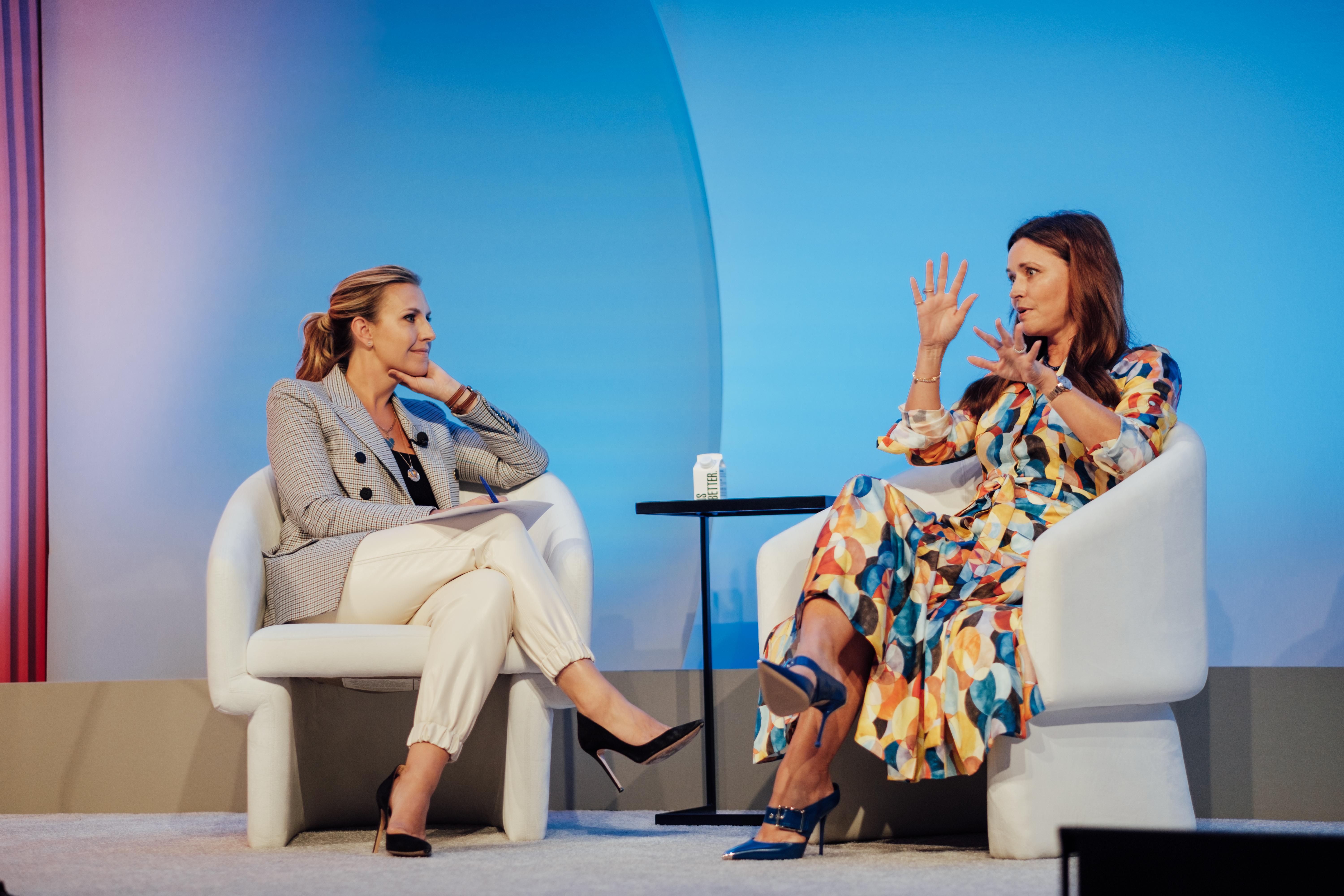
In a separate talk, with CNN's Poppy Harlow, Kirsten Green reflected on the vision that helped her create Forerunner, now celebrating its tenth anniversary:
"Have big goals and dreams. That’s the fuel that feeds the fire. Things get hard no matter who you are, what you’re doing. Everyone’s got challenges. You need to know what you’re doing, then think practical.
Our connective tissue has always been to lead with an eye to the consumer. Every business has an end user and the lion’s share of the economy is driven by consumers spending their money and time. So much of it tracks back to them. That’s our North Star."
The "middle" will be innovated out of healthcare
Glen Tullman is the CEO of Transcarent, a healthcare experience company making it easy for consumers to access high-quality, affordable healthcare, opined on the importance of great consumer experiences and forecasted consolidation ahead:
“In healthcare the middle has gotten bigger, that’s where the friction is and where the cost is,” he said, and the middle’s gotta go. “The best payors who are real innovators, they got that and are focused on the consumer.” We can also expect a lot of consolidation in the near future. “The point solutions are in trouble, if you have one to two chronic conditions you are talking to two to four different apps, coaches, so people are moving away from point solutions to integrated health experiences. It's about the experience for health consumers, about alignment with people who pay for care…As investors this is the next transformational industry and this is the most complex market, and what we build in the U.S. will drive the rest of the world.”
Healthcare fundraising continues defying expectations—and downturn trends
Jon Norris, Managing Director of Silicon Valley Bank's Healthcare Practice, put some perspective on just how well his sector of choice continues performing despite all the hand-wringing:
“Everybody saw what 2021 was, which was a record year now with epic proportions—$28 billion in fundraising in the U.S. for healthcare investments, almost double what we saw in 2020. We thought that was setting the stage for a bit of pullback in 2022, both on the fundraising side and the investment, but U.S. healthcare fundraising saw no slowdown at all based on midyear numbers. At midyear we’re at $15.8 billion.
This is what you would call a challenging time in the financial markets, and if you compare it to, let's say 2008 into 2009 and '10, there was not that type of fundraising into the downturn.
One of the biggest areas is really tech firms that are doing more and more within healthcare. You're seeing these traditional tech funds taking 10, 15, 20% of their fund to focus on health tech. People realize that is an interesting opportunity, and you can leverage SaaS-based technologies and put them into the healthcare system.”
Women's health is finally starting to get the attention it deserves, with lots more room to grow

The way women's health has been overlooked is a travesty, and in the past couple years the tides have notably started turning. Maven Clinic, a virtual care platform for women and families, was the first company in the category to reach unicorn status. Founder and CEO Kate Ryder sees lots more opportunity for the taking:
"One of the things that’s so striking about building a company in this space is that there’s so much blue ocean. We’re selling global fertility deals, we’re in Arkansas working with lower income families in Medicaid, helping them get to clinics. We’ve sold our menopause product to 70 companies, and it hasn’t even launched yet."
Lux Capital's Deena Shakir, who was an early investor, added, "Women’s health is an opportunity to create value for women, for society, for companies. It’s an incredible missed opportunity. We need to be destigmatizing it as a women’s issue, something to be only invested it as women. That’s changing. It’s not just about women and their bodies. It’s about them as the primary decision makers and being responsible for 80% of the healthcare spend."
Communities don't exist to be capitalized—be smart
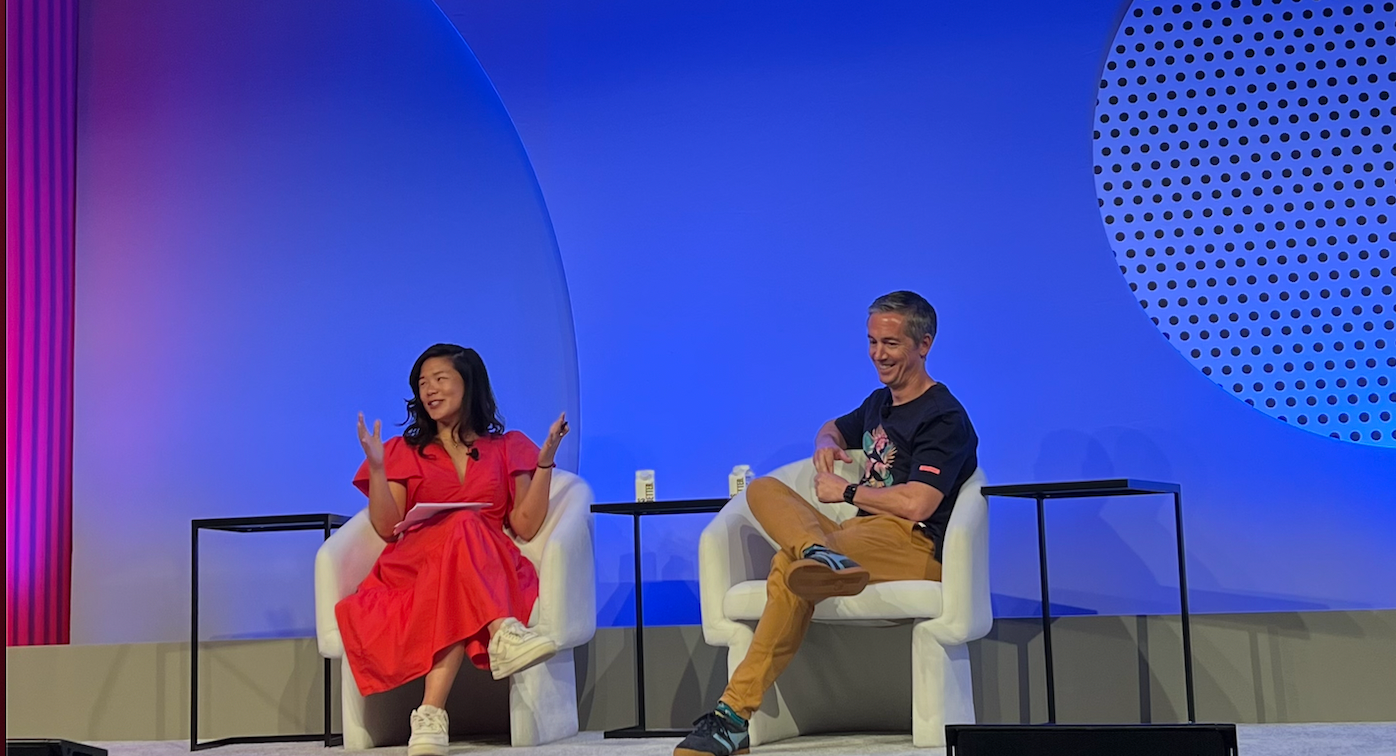
Paul Dix's InfluxDB, a company making an open-source time series database, is technically based in San Francisco, but Paul has remained a New Yorker. Onstage with Work-Bench Cofounder and GP Jessica Lin, he shared perspectives on open-source challenges in balancing community experience and profitability:
"My hot take on community is that the community that you’re building is not your top of funnel," he said. "The GTM team is going to pressure you to transfer the community to leads, but that’s not how good communities work; the community is going to take on a life of its own."
"We ended up launching a commercial product in 2016," he said, "and our revenue run rate ended up being insane. I would have loved if I had learned earlier that I was eventually going to commercialize, and it's important to be very clear with your community early on. Have a thesis on what the difference is going to be between closed source and open source, and if you can figure out how to make change iteratively, do so."
NYC is the place to be
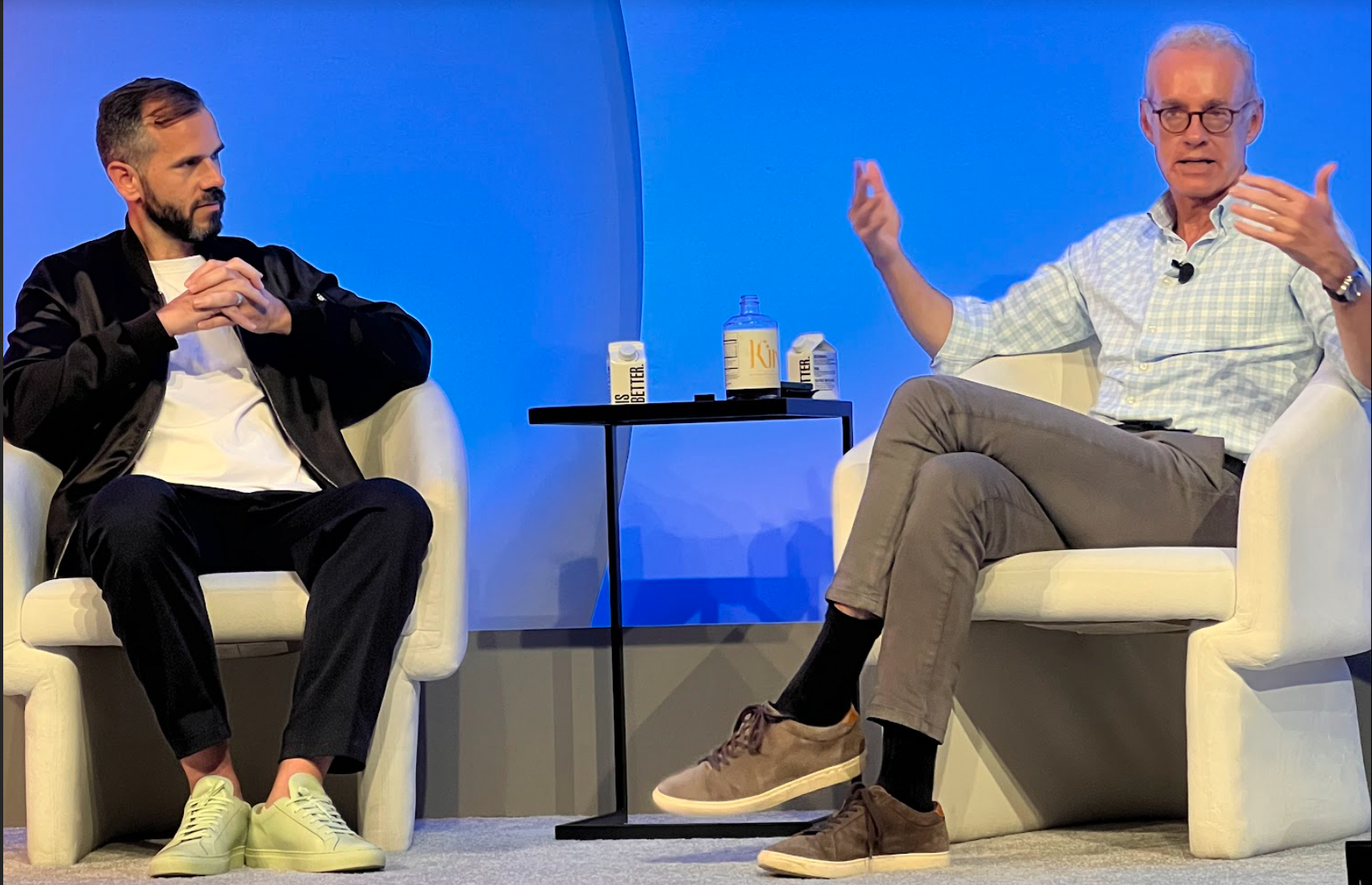
NYC legend Kevin Ryan—a creator of AlleyCorp, MongoDB, Business Insider, GILT, Zola, Nomad Health, CoEdition, DoubleClick, and more—put it simply: "New York will become a bigger ecosystem than the Bay Area within the next 10 years"
Gunderson Dettmer Partner Randall J. Clark adds, "More people are moving to NY every year to work for, or start, tech companies and VC funds, which is really exciting for the future of the NYC tech ecosystem. I think that will only continue as we become more comfortable working remotely and the amount, and diversity, of talent and capital in Silicon Alley grows."
One NYC advantage? A touch of hospitality
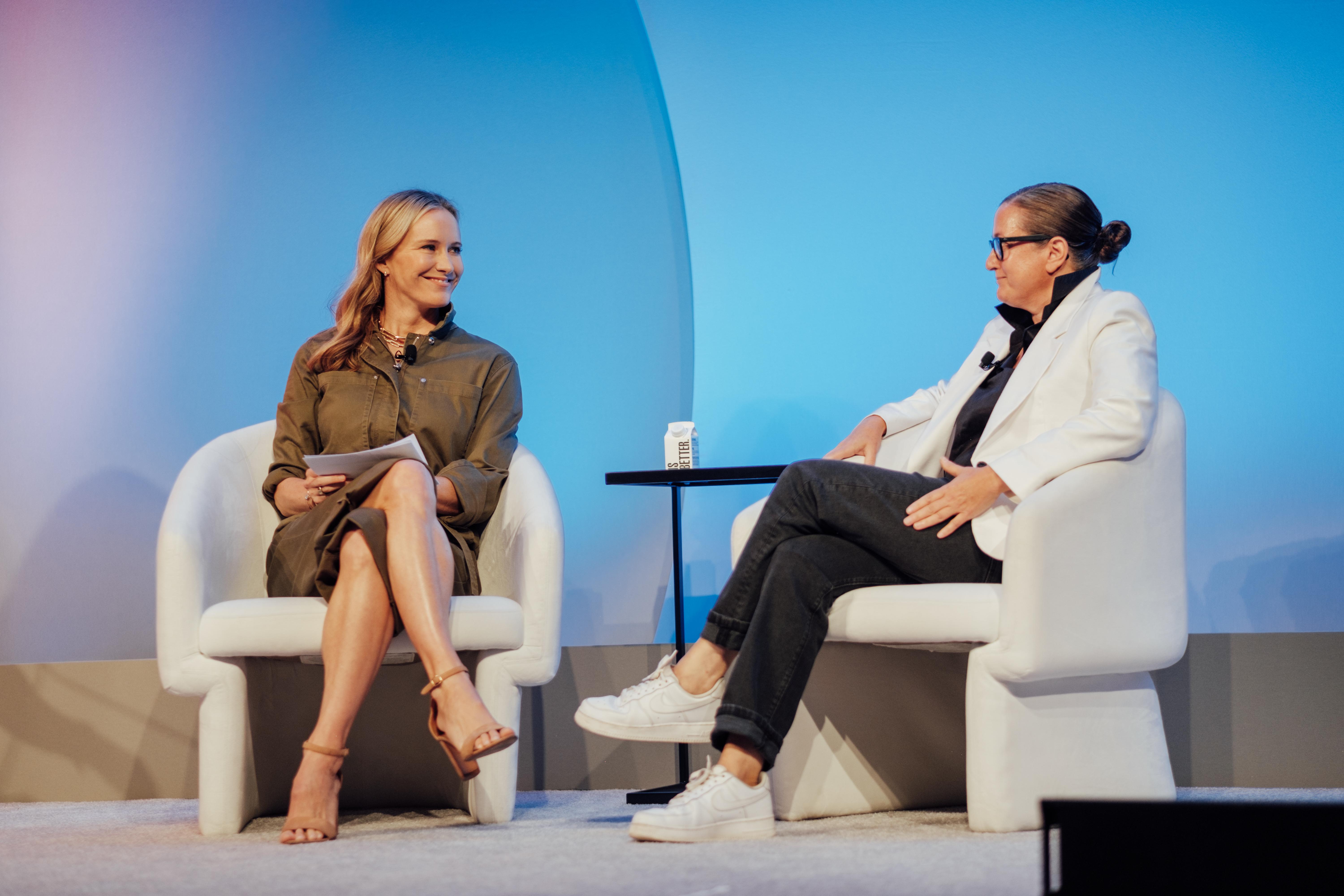
As both Missy Robbins—the creator of Misi and Lilia—and Will Guidara—former co-owner of Make It Nice, the hospitality group behind Eleven Madison Park, NoMad New York, and Made Nice—reminded the business audience, part of what makes New York magical is the unparalleled experiences dining entrepreneurs offer here.
Missy said as a business owner she's come to see that, "Best-in-class is figuring out who you are and not aggressively expanding. It is important to invest in people and make them feel valued whether they are a bartender or a cook; give people a supportive environment and space to grow, and encourage people to find their passion."

Will says, "Unreasonable hospitality is the principle that got us to the top of the restaurant business. Unreasonable hospitality means presenting the customers with bespoke dishes, served with utmost care, and a feeling of complete joy when the customers are utterly overjoyed and satisfied." He points out: "In business and in hospitality, creating specialized products and serving customers is commoditized. Now it matters on how you make the customers and your employees feel. Unreasonable hospitality can be applied across any customer-facing business, and it should also strive to create a culture that empowers people to be extremely productive."
New York City fintech remains on a roll
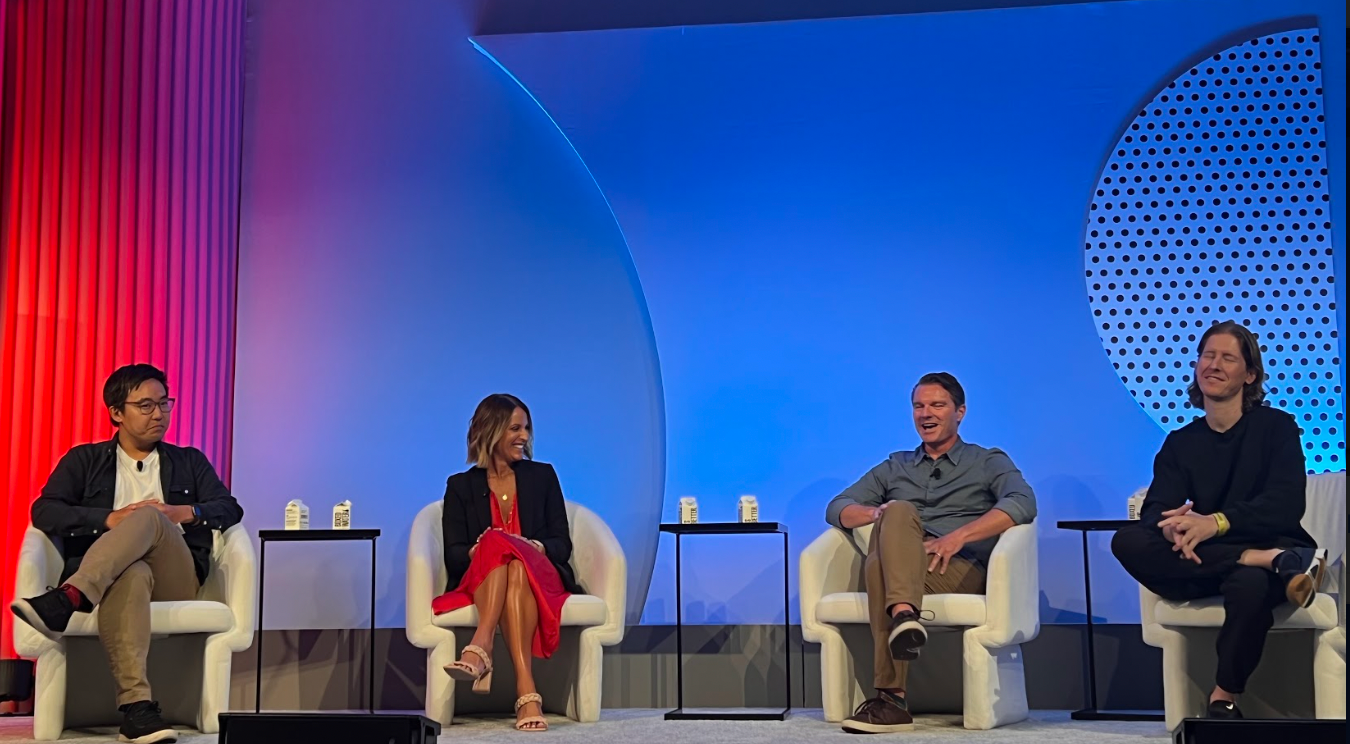
Dan Allred, Senior Market Manager of Silicon Valley Bank's National Fintech team, points out New York's moat as a fintech leader just keeps getting more notable over time:
“There is an unmistakable momentum in New York fintech. While global fintech investment has dropped, New York remains a bright spot. We’re seeing an increase in funding, even in Q2 over Q1, and the first half of 2022 over second half of 2021 actually shows even an increase in the number of deals.
I feel like New York fintech specifically is still very much in a zone where the momentum is just driving even more success.”
The Grey Lady is in no rush
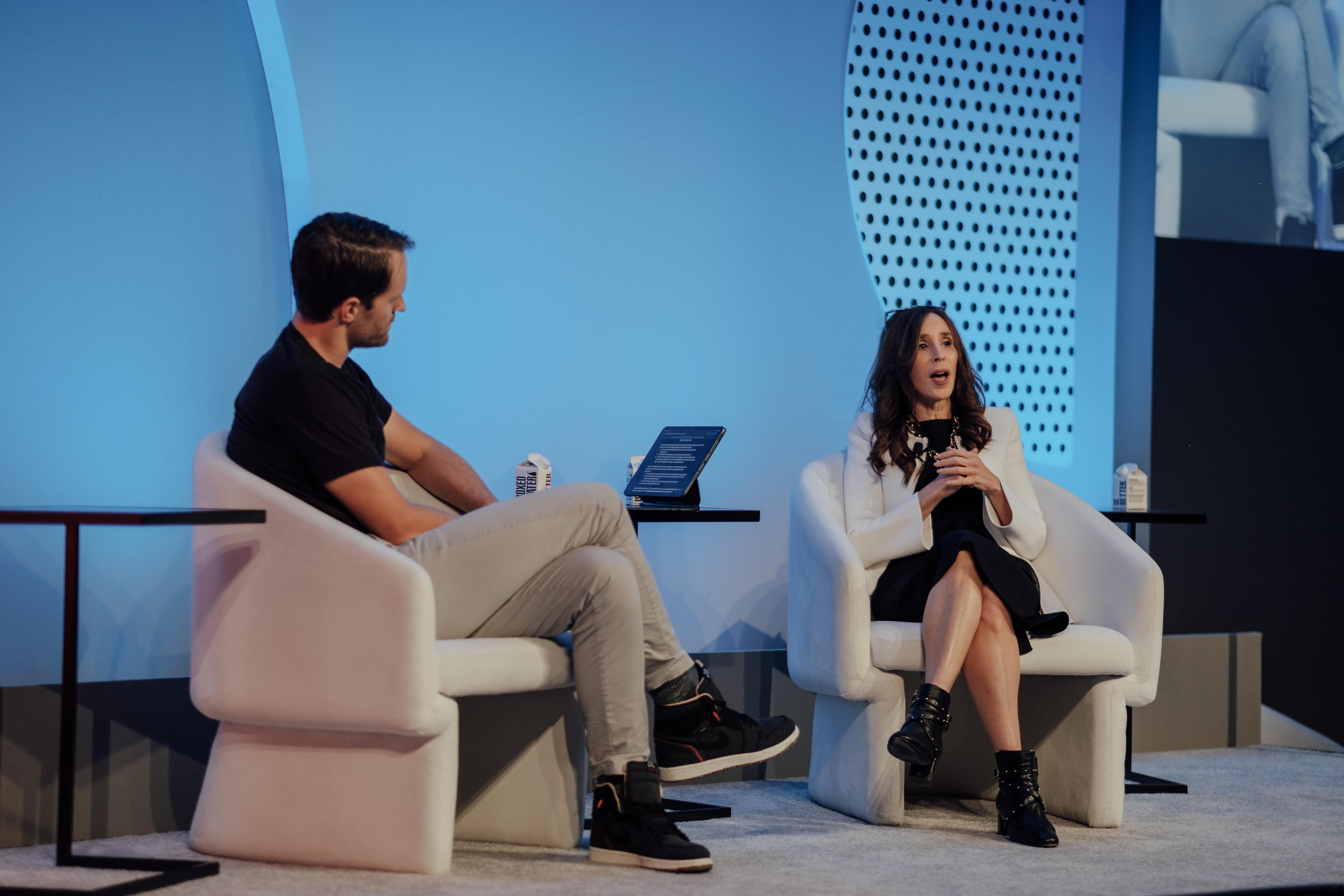
In our final conversation, between The New York Times' Meredith Kopit Levien and Redpoint's podcaster-in-chief (and Managing Director) Logan Bartlett, Meredith spoke to a major advantage her business has over startups: It can take its sweet time.
"We think in decade and generational time horizons," she says. "We have ambitions for how much bigger and more influential we can be over the next 10 years, 20 years. As a family-owned business, we can focus on long term value. There are moments when you want to be growing faster, but if you’re actually investing in your product the whole way through, that’s where value comes from."
Give it up one more time for the sponsors!
“As a proud sponsor of the Summit this year, we hosted an exclusive happy hour with Founders and Funders to discuss ideas around optimizing their wealth to reach their financial goals. Connect with us to learn more about how the J.P. Morgan Private Bank provides tailored advice across the entire Innovation Economy.”
—Angela Mattione and Gina Holzheimer of the J.P. Morgan Private Bank